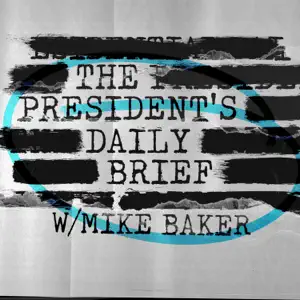
Time to end secret data laboratories—starting with the CDC
The American people are waking up to the fact that too many public health leaders have not always been straight with them. Despite housing treasure…
Thought Leader: Marty Makary

For nearly four centuries, international relations have been anchored by the sovereign powers enshrined in the 1648 Treaty of Westphalia. Mutual respect for sovereignty means that governments of every type, whether a liberal democracy or a brutal autocracy, show deference to one another’s monopoly power over the movement of their citizens overseas.
What this means today is that to cross a border, a traveler must present a passport or at least be registered to one. And with rare exceptions, good luck trying to board an international flight without a passport.
But deference to the passport as the sole criterion for identification and international movement gives dictatorships unchecked power over their citizens. This, in turn, can be a catastrophe for dissidents who oppose these regimes and their policies.
Authoritarian regimes don’t just issue passports—they also revoke them. Even when a citizen has escaped to the “security” of overseas, they can be coerced by the dictatorship they left behind if it cancels their passport or revokes their citizenship, making them stateless.
That’s why relying on passports as the only basis of international mobility is a gift to dictatorships. The world’s democracies risk becoming the dictators’ witting enablers and need to pilot an alternative to enable the mobility of activists who lack dual citizenship.
While it is easy to understand why governments so jealously guard the principle of sovereignty, a select group of oppositionists are at risk of persecution even when overseas. Biometric technology—already used for identification purposes—could also be used to enable travel, entry, and exit into democratic countries. This would prevent dictatorships from abusing their passport power extraterritorially to silence dissent.
TAKE THE REGIME of Russian President Vladimir Putin or Venezuelan President Nicolás Maduro: These dictatorships obviously control entry and exit into their own countries but can also abuse passport power to harass, coerce, and then immobilize their citizens abroad.
They do so in three ways.
First, dictatorships in Moscow, Havana, and Tehran, no differently than liberal democracies in London and Paris, can revoke passports. This does not make people stateless under international law, but they are immobilized since they lack a valid travel document. Solutions exist, such as rarely used passport waivers. But generally, travelers without passports are unable to board a plane, journey more than once, or move around regularly.
Second, dictatorships can cancel citizenships, not just passports. And this does make the target stateless, exposing them to risk of deportation or, if they apply for asylum, capricious rules that may force them to remain in place for years. Asylum rules immobilize oppositionists and dissidents because an application can take years to clear and generally places restrictions on travel, work, and political activity: Once stranded in place, waiting for asylum, they cannot travel to speak out internationally, which is precisely the dictatorships’ intent.
Third, dictatorships can attempt to seize their citizens overseas—for instance, by issuing an Interpol red notice, which is a global alert system through which member governments can request law enforcement around the world to provisionally arrest someone and then seek their extradition. While a red notice is not a formal arrest warrant, a traveling dissident who lands at a foreign airport can have this notice pop up on an immigration officer’s computer screen, leading to detention, custody, or deportation when the dictatorship demands they be rendered for fake “crimes,” such as criticizing the dictator, regime policies, or, in Putin’s case, opposing the war or supporting Ukraine, which have been criminalized.
Time to end secret data laboratories—starting with the CDC
The American people are waking up to the fact that too many public health leaders have not always been straight with them. Despite housing treasure…
Thought Leader: Marty Makary
David Frum: How Harris Roped a Dope
This piece is by WWSG exclusive thought leader, David Frum. Vice President Kamala Harris walked onto the ABC News debate stage with a mission: trigger…
Thought Leader: David Frum
Michael Baker: Ukraine’s Faltering Front, Polish Sabotage Foiled, & Trump vs. Kamala
In this episode of The President’s Daily Brief with Mike Baker: We examine Russia’s ongoing push in eastern Ukraine. While Ukrainian forces continue their offensive…
Thought Leader: Mike Baker

